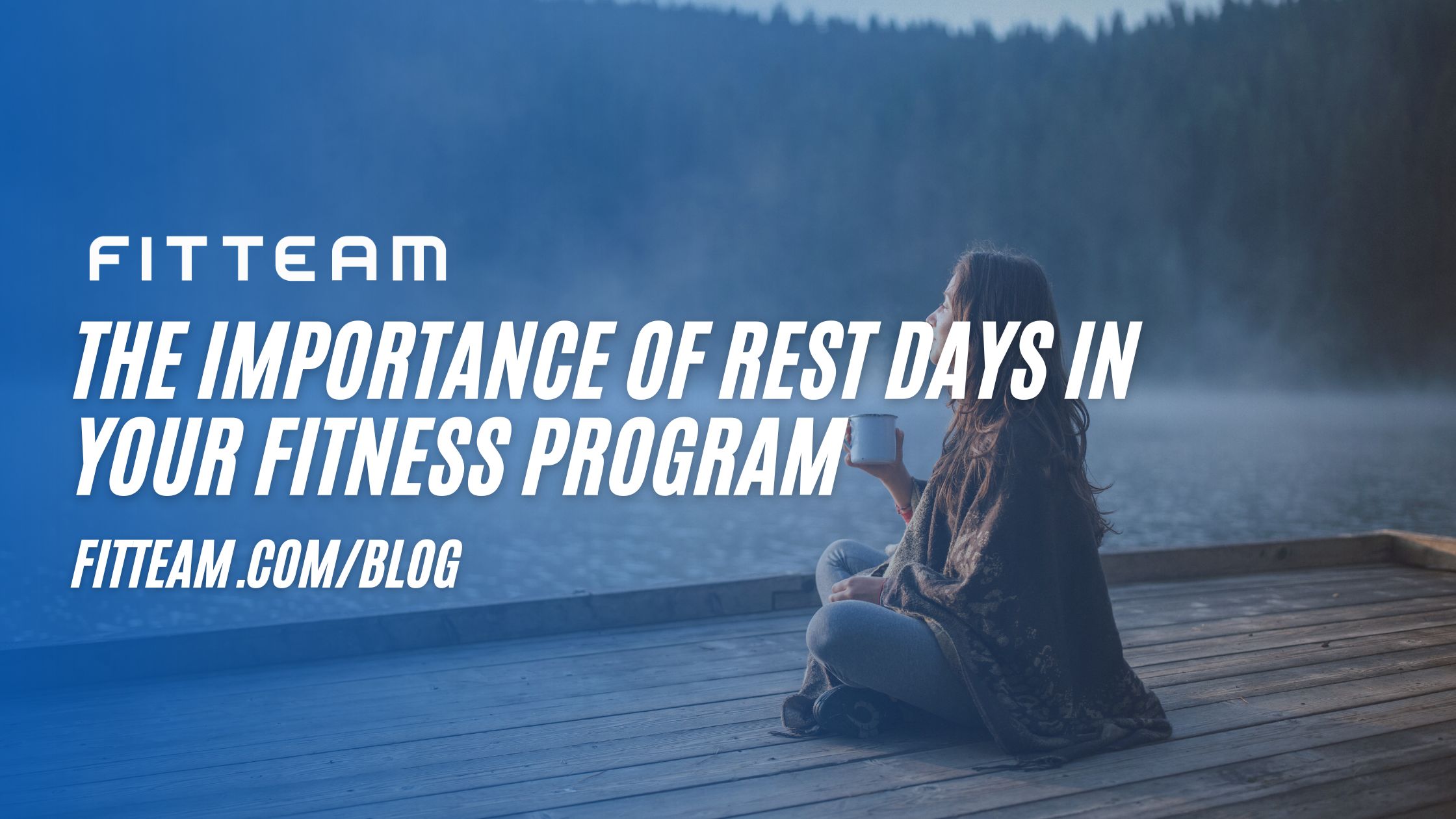
03 Sep The Importance of Rest Days in Your Fitness Program
The Importance of Rest Days in Your Fitness Program
In the pursuit of physical fitness, consistency is key. But equally important is knowing when to take a break. Many people underestimate the significance of rest days in their fitness routine, thinking that more time in the gym equals better results. However, rest days are essential to both performance and long-term success. Whether your goal is to build muscle, improve endurance, or enhance overall health, incorporating rest days can prevent injury, promote recovery, and improve performance.
1. Rest Days Promote Muscle Recovery
When you work out, especially during resistance training, your muscles experience small tears, which is a normal part of the muscle-building process. These micro-tears need time to heal, which is how muscles grow stronger and larger. Without sufficient rest, muscles don’t get the chance to repair themselves properly, leading to fatigue and even injury. Rest days provide your body the time it needs to repair, rebuild, and grow.
Science behind muscle repair: During rest, your body synthesizes proteins to heal the damaged fibers and lay down new muscle. This recovery process also helps reduce delayed onset muscle soreness (DOMS), ensuring that you’re ready for your next workout.
2. Prevent Overtraining and Injury
Too much of a good thing can be harmful—this holds especially true in fitness. Overtraining occurs when the body is pushed too hard without enough recovery time, leading to decreased performance, increased risk of injury, and even mental burnout. Common symptoms of overtraining include chronic fatigue, muscle soreness that doesn’t go away, frequent colds or illnesses, and even insomnia.
A proper balance between intense workouts and rest days reduces the risk of injury and overtraining syndrome, which can sideline your progress for weeks or even months. Taking regular rest days allows your joints, ligaments, and muscles to recover and adapt to the stress of exercise.
3. Mental Refresh and Motivation
Rest isn’t just about physical recovery. It’s also essential for mental well-being. Continuous exercise without a break can lead to burnout and a loss of motivation. Rest days offer a mental reset, allowing you to stay focused and driven on your fitness journey. They can also serve as a reward, giving you something to look forward to after a week of hard work. This can prevent feelings of exhaustion or frustration, helping you stay consistent in the long run.
Taking time off from your routine doesn’t mean abandoning your goals. In fact, it makes the next workout more effective because you’ll approach it with more energy, enthusiasm, and focus.
4. Boost Long-Term Performance
Athletes and fitness enthusiasts who incorporate rest days often perform better over time compared to those who don’t. Continuous, intense training leads to diminishing returns, as your body simply can’t keep up with the demand. Resting allows the body to adapt to the stress of training, making future workouts more efficient.
A strategic approach to rest days also contributes to better overall program periodization. It’s not just about resting randomly but integrating these breaks into your workout cycle. Many trainers recommend one or two rest days per week depending on your intensity level.
5. Types of Rest Days
There are two main types of rest days: complete rest and active recovery.
- Complete Rest: This means taking a full break from exercise. It’s essential for recovery, particularly after high-intensity or heavy weightlifting sessions.
- Active Recovery: On these days, you engage in low-intensity activities like walking, swimming, or yoga. Active recovery can help increase blood flow to muscles, enhancing the recovery process without adding additional strain.
Conclusion
Incorporating rest days into your fitness program is not a sign of weakness or lack of dedication; it’s a necessary component of a well-rounded fitness regimen. Rest days allow your muscles to repair, prevent overtraining injuries, boost mental motivation, and ultimately improve your long-term performance. Whether you’re doing home workouts or hitting the gym, make sure to give your body the recovery it deserves.

